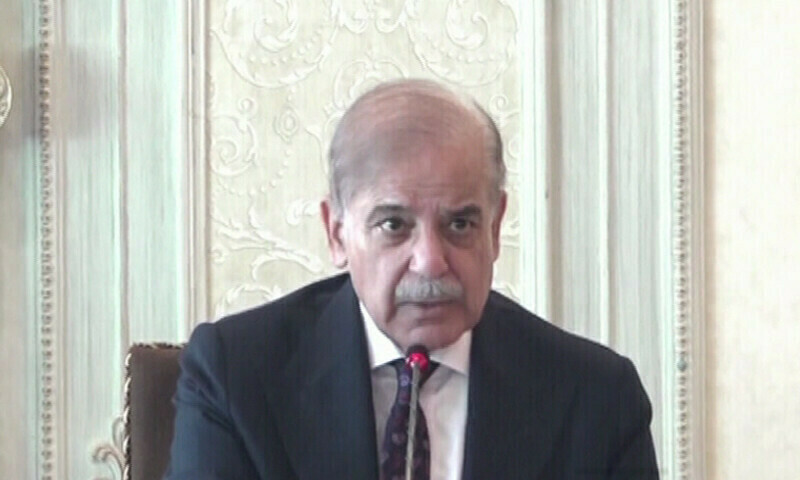The government’s agreement to purchase power from a generation project was prematurely terminated on Thursday, according to Hub Power Company Ltd., Pakistan’s largest private utility.
The move follows a statement made by Power Minister Awais Leghari to Reuters last month that the government was renegotiating agreements with independent power producers (IPPs) to lower electricity tariffs as household and business expenses soar.
The company informed the Pakistan Stock Exchange in a notice that the government and market operator, the Central Power Purchasing Agency (CPPA), agreed to settle the company’s outstanding receivables until October 1.
It stated that in an action taken “in the greater national interest,” its board approved an accelerated expiration date of October 1 for the deal instead of March 2027.
Separately, Prime Minister Shehbaz Sharif announced on Thursday that the government had reached an agreement with five IPPs to reevaluate purchase contracts, which will result in annual savings of Rs60 billion (216.10 million).
PM Shehbaz stated as he presided over today’s meeting of the federal cabinet in Islamabad: Power purchase contracts have been agreed upon by five IPPs with mutual consent and national interests over personal interests.
The premier stated, “From today onwards, the ‘take or pay’ [previous contracts] with these five IPPs […] have been completely terminated.” He stated that these IPPs would only receive the unpaid balances without interest.
According to state-run Radio Pakistan, PM Shehbaz, the move would also benefit the national exchequer in the amount of approximately Rs411 billion.
It added that the premier “especially mentioned Chief of Army Staff General Asim Munir, who took a personal interest in the whole matter” and acknowledged the contributions and support of the allied parties.
At least five Independent Power Producers (IPPs) had been asked by a task force backed by the powers that be to “voluntarily” terminate their power purchase agreements (PPAs) without receiving any compensation, according to a Dawn report. Four of the IPPs were established under the power policy of 1994, and one was established under the policy of 2002.
To address persistent shortages, Pakistan approved dozens of private IPP projects financed primarily by foreign lenders a decade ago.
However, after a prolonged economic crisis reduced consumption, the deals, which included incentives like high guaranteed returns and commitments to pay even for unused power, ultimately resulted in excess capacity.
Due to a lack of funds, the government has incorporated these capacity payments and fixed costs into consumer bills, resulting in protests from domestic users and industry organizations.
In July, negotiations for a crucial staff-level pact with the International Monetary Fund (IMF) for a $7 billion bailout centered on the necessity of revisiting power deals.
Pakistan has begun discussions on structural reforms and refiling China-owed power sector debt, but progress has been slow. Additionally, it has pledged to end power sector subsidies.
Priority given to cutting power prices: Leghari
Independently, Leghari said that a decrease in power levies and the reasonable arrangement of power to individuals were the public authority’s first concerns.
The minister addressed a press conference and stated that various measures were being taken to reduce electricity costs. He also stated that electricity costs ought to decrease by Rs10 per unit.
To this end, he stated, agreements with IPPs were being mutually revised and reevaluated.
Leghari went on to say that the prime minister established a National Task Force to implement power sector reforms. He added that negotiations were underway with five IPPs who had been identified.
He stated that each section of their agreements had been thoroughly examined, and they had come to an agreement to end their power purchase agreements with five IPPs.
The minister claimed that it would result in annual savings of between Rs60 and Rs70 billion and a total benefit to the national budget of Rs411 billion.
Leghari expressed gratitude to the five IPP owners for agreeing to end their contracts in the national interest and stated that the agreement would come into effect within the next few days.
In addition, he announced the establishment of the power sector’s Independent Market Operator System. He stated that the full-fledged institution would “not only promote competition but also boost the entire power sector to new heights,” and that it would be fully operational in January 2025.
Additionally, the Public Transmission and Dispatch Organization (NTDC) is likewise being completely changed and the CPPA would play its own part in the area.
Leghari added, “A comprehensive program is also being developed to increase electricity consumption in the winter.”
Taking all development partners into confidence is also bringing about reforms in distribution companies, he added.
He continued, “The losses of Discos in the last three months were clearly reduced.”
Leghari expressed the hope that within a few months, power tariffs would decrease by Rs8-10 per unit. The minister stated that the reduction in power tariffs would boost electricity consumption and support industry expansion.
He stated, “New shops and charging stations will be opened to charge batteries and electric vehicles.” Additionally, it will open up additional employment opportunities in the nation.
The minister said in response to a question that the new agreement would help the national budget save billions of rupees. Capacity payments are currently made to IPPs, but they will not be made in the future, he continued. Customers will buy electricity like shares from the market.
For information on Pakistani and global business, finance, and technology, follow Dawn Business on Twitter, LinkedIn, Instagram, and Facebook.



